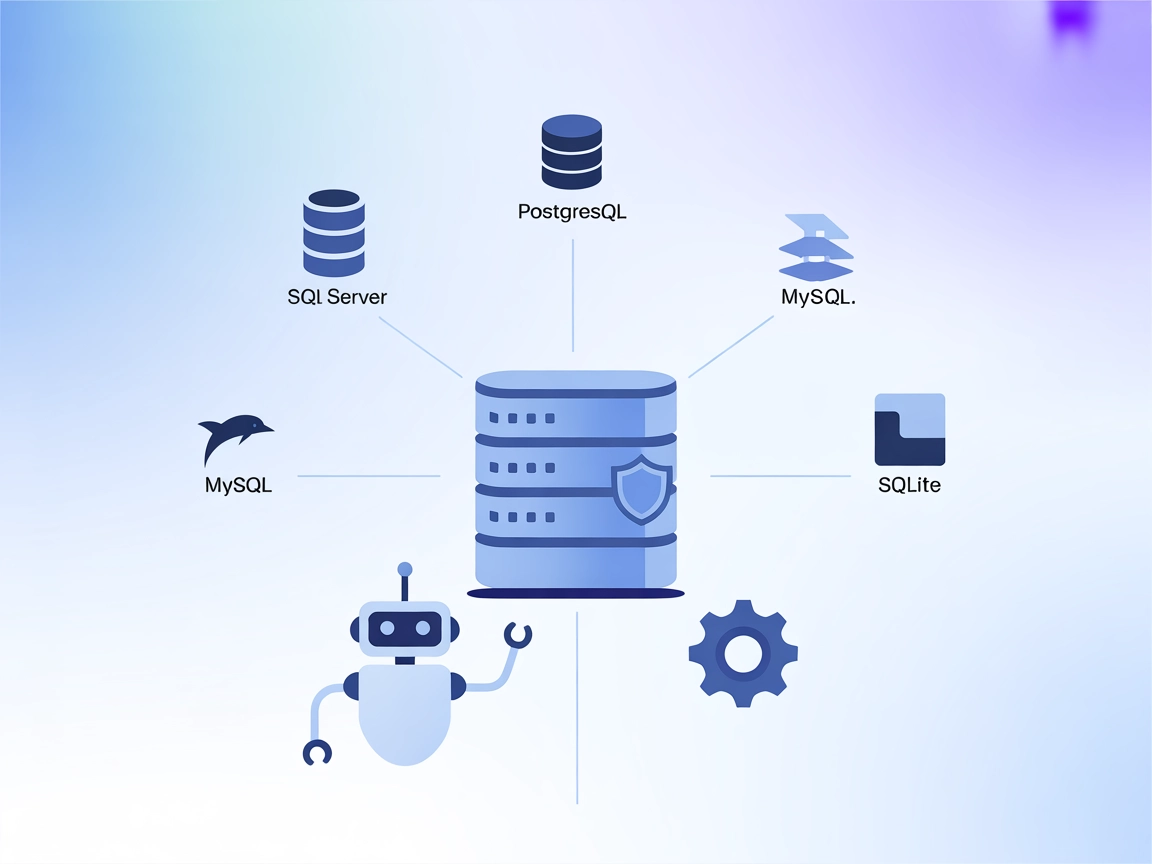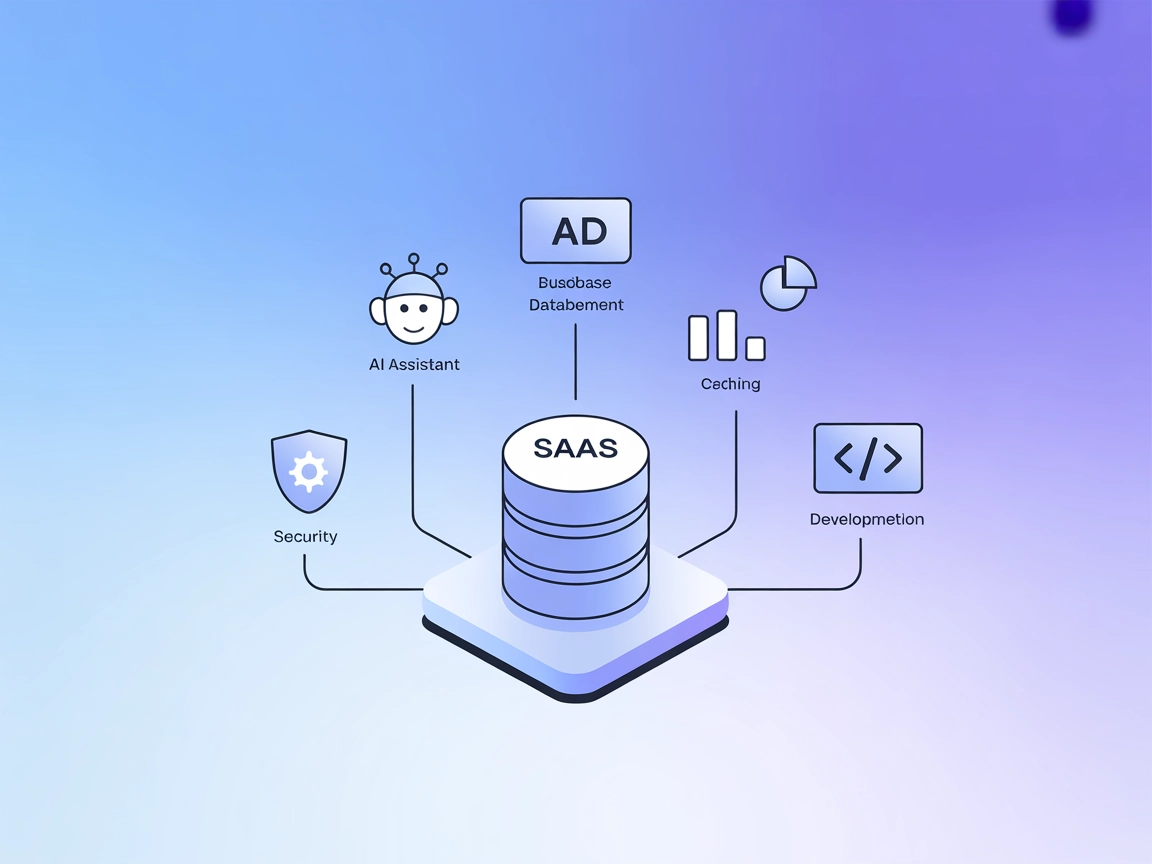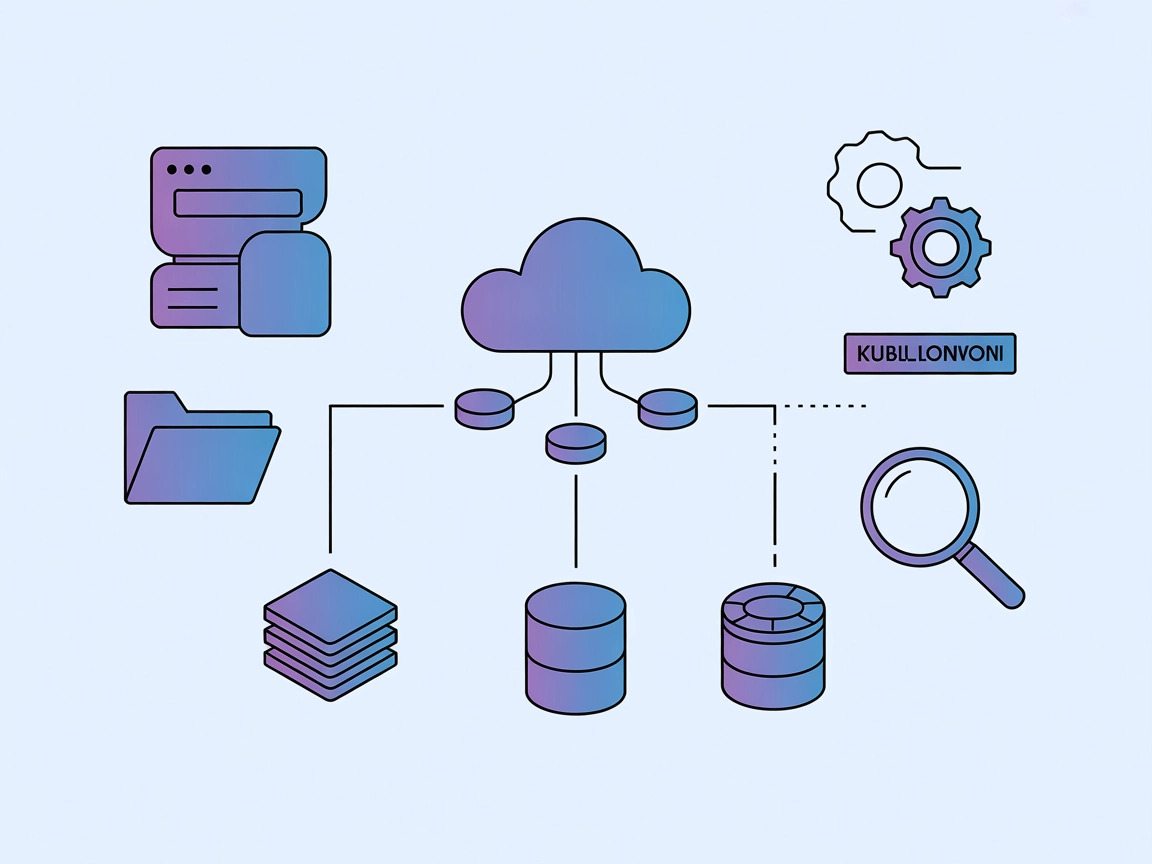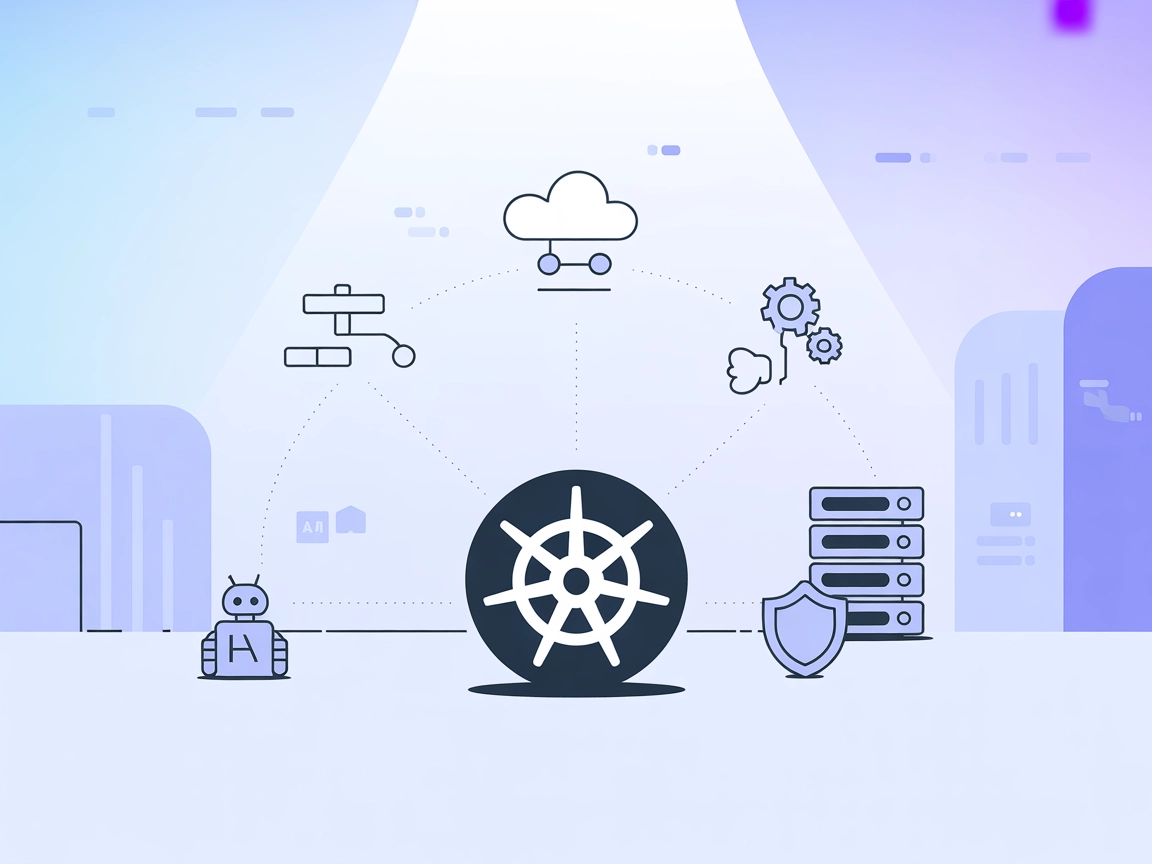
MCP Database Server
The MCP Database Server enables secure, programmatic access to popular databases like SQLite, SQL Server, PostgreSQL, and MySQL for AI assistants and automation...

Connect FlowHunt’s AI agents to KWDB for powerful, secure, and standardized database access—enabling querying, data manipulation, and business intelligence through the Model Context Protocol.
FlowHunt provides an additional security layer between your internal systems and AI tools, giving you granular control over which tools are accessible from your MCP servers. MCP servers hosted in our infrastructure can be seamlessly integrated with FlowHunt's chatbot as well as popular AI platforms like ChatGPT, Claude, and various AI editors.
The KWDB MCP Server is an implementation of the Model Context Protocol (MCP) that connects AI assistants with the KWDB database, providing business intelligence and data manipulation capabilities. Acting as a bridge, the KWDB MCP Server enables AI models to perform database queries, retrieve metadata, modify data, and access syntax guides through standardized tools and resources. It supports both reading and writing operations (e.g., SELECT, INSERT, UPDATE, DDL), automatically manages query limits for efficiency, and formats all API responses in a consistent JSON structure. This server enhances development workflows by simplifying database access, ensuring security with distinct tools for read/write, and exposing useful metadata and table schemas to clients for rich, context-aware LLM interactions.
kwdb://product_info): Contains information about the KWDB product version and supported features.kwdb://db_info/{database_name}): Provides details about a specific database, including engine type, comments, and contained tables.kwdb://table/{table_name}): Exposes the schema of a specific table, including columns and example queries.SELECT, SHOW, and EXPLAIN on the KWDB database.INSERT, UPDATE, DELETE, and DDL commands (CREATE, DROP, ALTER).windsurf.config.json).mcpServers object with the appropriate command and arguments.Example JSON configuration:
{
"mcpServers": {
"kwdb": {
"command": "npx",
"args": ["@KWDB/mcp-server@latest"]
}
}
}
Securing API keys:
{
"mcpServers": {
"kwdb": {
"command": "npx",
"args": ["@KWDB/mcp-server@latest"],
"env": {
"KWDB_API_KEY": "${KWDB_API_KEY}"
},
"inputs": {
"database_url": "your_kwdb_connection_string"
}
}
}
}
mcpServers.Example JSON configuration:
{
"mcpServers": {
"kwdb": {
"command": "npx",
"args": ["@KWDB/mcp-server@latest"]
}
}
}
Securing API keys:
{
"mcpServers": {
"kwdb": {
"command": "npx",
"args": ["@KWDB/mcp-server@latest"],
"env": {
"KWDB_API_KEY": "${KWDB_API_KEY}"
},
"inputs": {
"database_url": "your_kwdb_connection_string"
}
}
}
}
.cursorrc).Example JSON configuration:
{
"mcpServers": {
"kwdb": {
"command": "npx",
"args": ["@KWDB/mcp-server@latest"]
}
}
}
Securing API keys:
{
"mcpServers": {
"kwdb": {
"command": "npx",
"args": ["@KWDB/mcp-server@latest"],
"env": {
"KWDB_API_KEY": "${KWDB_API_KEY}"
},
"inputs": {
"database_url": "your_kwdb_connection_string"
}
}
}
}
mcpServers.Example JSON configuration:
{
"mcpServers": {
"kwdb": {
"command": "npx",
"args": ["@KWDB/mcp-server@latest"]
}
}
}
Securing API keys:
{
"mcpServers": {
"kwdb": {
"command": "npx",
"args": ["@KWDB/mcp-server@latest"],
"env": {
"KWDB_API_KEY": "${KWDB_API_KEY}"
},
"inputs": {
"database_url": "your_kwdb_connection_string"
}
}
}
}
Using MCP in FlowHunt
To integrate MCP servers into your FlowHunt workflow, start by adding the MCP component to your flow and connecting it to your AI agent:

Click on the MCP component to open the configuration panel. In the system MCP configuration section, insert your MCP server details using this JSON format:
{
"kwdb": {
"transport": "streamable_http",
"url": "https://yourmcpserver.example/pathtothemcp/url"
}
}
Once configured, the AI agent is now able to use this MCP as a tool with access to all its functions and capabilities. Remember to change "kwdb" to whatever the actual name of your MCP server is and replace the URL with your own MCP server URL.
| Section | Availability | Details/Notes |
|---|---|---|
| Overview | ✅ | |
| List of Prompts | ✅ | Syntax guide only |
| List of Resources | ✅ | 3 documented resources |
| List of Tools | ✅ | read-query, write-query |
| Securing API Keys | ✅ | Uses env in configuration |
| Sampling Support (less important in evaluation) | ⛔ | Not mentioned |
The KWDB MCP Server offers clear documentation for its main features, tools, and resources, with solid support for basic MCP integrations. However, prompt templates are limited (only syntax guide is documented), and there’s no explicit information on Roots or Sampling support. Its utility for standard database operations is strong, but coverage of advanced MCP/LLM features is average.
MCP Score: 6/10
| Has a LICENSE | ✅ (MIT) |
|---|---|
| Has at least one tool | ✅ |
| Number of Forks | 1 |
| Number of Stars | 3 |
The KWDB MCP Server is an implementation of the Model Context Protocol that connects AI assistants with the KWDB database, enabling secure querying, data manipulation, metadata access, and more through a standardized interface.
It supports both read (SELECT, SHOW, EXPLAIN) and write (INSERT, UPDATE, DELETE, DDL) operations, and formats all API responses in a consistent JSON structure for easy integration.
By exposing structured access to database queries and metadata, the server enables AI agents to generate reports, analyze business data, and power dashboards directly from KWDB.
You should use environment variables for sensitive information like API keys, as shown in the configuration examples. This keeps credentials out of your codebase.
Yes, the KWDB MCP Server provides resources to access product information, database metadata, and table schemas, making it easy to explore and document your database.
Add the MCP component to your FlowHunt flow, configure it with your MCP server details, and connect it to your AI agent. This enables the agent to use all KWDB MCP Server functions within your workflow.
Supercharge your AI-powered workflows by integrating the KWDB MCP Server. Enable secure, flexible database access and business intelligence inside FlowHunt.

The MCP Database Server enables secure, programmatic access to popular databases like SQLite, SQL Server, PostgreSQL, and MySQL for AI assistants and automation...

The Kubernetes MCP Server bridges AI assistants and Kubernetes/OpenShift clusters, enabling programmatic resource management, pod operations, and DevOps automat...

The Kubernetes MCP Server bridges AI assistants and Kubernetes clusters, enabling AI-driven automation, resource management, and DevOps workflows through standa...
Cookie Consent
We use cookies to enhance your browsing experience and analyze our traffic. See our privacy policy.